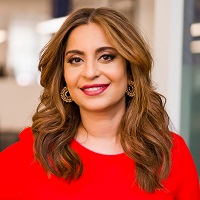Financial Planning Should Be Intergenerational
Overcoming the unspoken rule that money is too taboo a topic to discuss among family members is important going forward. The reality is that families, at some point, will need to be on the same page about wealth planning.


Profit and prosper with the best of Kiplinger's advice on investing, taxes, retirement, personal finance and much more. Delivered daily. Enter your email in the box and click Sign Me Up.
You are now subscribed
Your newsletter sign-up was successful
Want to add more newsletters?

Delivered daily
Kiplinger Today
Profit and prosper with the best of Kiplinger's advice on investing, taxes, retirement, personal finance and much more delivered daily. Smart money moves start here.

Sent five days a week
Kiplinger A Step Ahead
Get practical help to make better financial decisions in your everyday life, from spending to savings on top deals.

Delivered daily
Kiplinger Closing Bell
Get today's biggest financial and investing headlines delivered to your inbox every day the U.S. stock market is open.

Sent twice a week
Kiplinger Adviser Intel
Financial pros across the country share best practices and fresh tactics to preserve and grow your wealth.

Delivered weekly
Kiplinger Tax Tips
Trim your federal and state tax bills with practical tax-planning and tax-cutting strategies.

Sent twice a week
Kiplinger Retirement Tips
Your twice-a-week guide to planning and enjoying a financially secure and richly rewarding retirement

Sent bimonthly.
Kiplinger Adviser Angle
Insights for advisers, wealth managers and other financial professionals.

Sent twice a week
Kiplinger Investing Weekly
Your twice-a-week roundup of promising stocks, funds, companies and industries you should consider, ones you should avoid, and why.

Sent weekly for six weeks
Kiplinger Invest for Retirement
Your step-by-step six-part series on how to invest for retirement, from devising a successful strategy to exactly which investments to choose.
What if financial planning wasn’t just a conversation between a client and an adviser? What if it could also be an enlightening discussion between parents, grandparents, kids and partners about their shared future?
Over the past few decades, the financial advice industry has been on the march away from transactional, product-centered meetings where an agent sits across the table to sell you an insurance plan or the latest investment fad. In its place, the industry has increasingly prioritized people’s planning needs over product considerations.
At Northwestern Mutual, we’ve been on the cutting edge of this movement – delivering clients comprehensive financial plans to help them protect what they’ve already built while also creating future prosperity.
From just $107.88 $24.99 for Kiplinger Personal Finance
Become a smarter, better informed investor. Subscribe from just $107.88 $24.99, plus get up to 4 Special Issues

Sign up for Kiplinger’s Free Newsletters
Profit and prosper with the best of expert advice on investing, taxes, retirement, personal finance and more - straight to your e-mail.
Profit and prosper with the best of expert advice - straight to your e-mail.
As this industry evolution continues, the question that I continue to ask myself is this: “What’s next?”
Staggering Wealth Transfer Coming
I believe one of the next-level terrains in financial services will be intergenerational wealth planning.
Over the next two decades, we will see the greatest wealth transfer in American history. It is predicted that Baby Boomers will shift a staggering $30 trillion in wealth, mostly to their family members.
But inherited wealth is not indefinite wealth. About 70% of affluent families lose their accumulated wealth by the second generation. Similarly, about 70% of family-run businesses fail or are sold by the second generation. Moreover, just 20% of today’s millionaires inherited their wealth; a full 80% earned it on their own. These statistics are leading many families to reassess the kind of estate they will leave behind to loved ones.
In my role as the head of Northwestern Mutual’s wealth management business, I’ve seen the passion that families have for setting up the next generation for success. It’s clear, however, that financial resources alone are not enough to ensure intergenerational financial security.
That’s why I believe intergenerational wealth planning can be a game-changer.
Often, younger generations have little insight into the inner workings of the older generation’s financial plans. This lack of awareness can create complexity and confusion, especially if a significant life event occurs. During an emotionally charged moment like an unexpected accident or illness – the last thing that anyone wants to rapidly study is a loved one’s financial situation and the options they have available.
Coming together in a family discussion about a perfect and imperfect future can be powerful – providing more clarity, certainty and opportunity for everyone involved.
Conversations That Go Beyond Financial Planning Strategies
Beyond coming together to discuss financial planning strategies and tactics, these conversations are also moments to reconnect with children on values, hopes, expectations and the financial acumen they need to be successful in the future.
These conversations can be especially impactful for families who own a small business. It’s a chance to talk about what mindsets and moves will help them to live productive and flourishing lives. And it’s an opportunity for younger generations to be clear about what they want – or don’t want – out of life.
My parents always taught me that the importance of money is not to be rich – it’s to be secure. “Wealth,” they told me, “is a tool we can use to create a path to freedom and independence.” I’ll always be grateful for what they taught me, and I’ve started to pass these lessons on to my son. But importantly, I’m excited to hear the kind of future that he wants to build for himself.
As we reconnect with our financial advisers in the year ahead, let’s resolve to add seats at the table for the next generation and the generation that came before us. Let’s rebel against the unspoken rule that money is too taboo a topic to discuss with the ones we love the most – because at some point, we will all need to be on the same page.
Let’s unite our family units around a common set of financial beliefs and values – and ensure that the greatest wealth transfer in history is not just defined by its size – but also by its positive impact on our families.
Profit and prosper with the best of Kiplinger's advice on investing, taxes, retirement, personal finance and much more. Delivered daily. Enter your email in the box and click Sign Me Up.

Aditi Javeri Gokhale holds executive accountabilities for Northwestern Mutual’s strategy to drive growth, competitiveness and relevance. In addition, she leads teams that oversee more than $540 billion in company and client assets, including over $325 billion in the institutional investment portfolio and $215 billion in retail client assets. She is also accountable for NM Future Ventures (the company’s venture investing arm) along with digital disruptor, Wyshbox.
-
 Nasdaq Leads a Rocky Risk-On Rally: Stock Market Today
Nasdaq Leads a Rocky Risk-On Rally: Stock Market TodayAnother worrying bout of late-session weakness couldn't take down the main equity indexes on Wednesday.
-
 Quiz: Do You Know How to Avoid the "Medigap Trap?"
Quiz: Do You Know How to Avoid the "Medigap Trap?"Quiz Test your basic knowledge of the "Medigap Trap" in our quick quiz.
-
 5 Top Tax-Efficient Mutual Funds for Smarter Investing
5 Top Tax-Efficient Mutual Funds for Smarter InvestingMutual funds are many things, but "tax-friendly" usually isn't one of them. These are the exceptions.
-
 Social Security Break-Even Math Is Helpful, But Don't Let It Dictate When You'll File
Social Security Break-Even Math Is Helpful, But Don't Let It Dictate When You'll FileYour Social Security break-even age tells you how long you'd need to live for delaying to pay off, but shouldn't be the sole basis for deciding when to claim.
-
 I'm an Opportunity Zone Pro: This Is How to Deliver Roth-Like Tax-Free Growth (Without Contribution Limits)
I'm an Opportunity Zone Pro: This Is How to Deliver Roth-Like Tax-Free Growth (Without Contribution Limits)Investors who combine Roth IRAs, the gold standard of tax-free savings, with qualified opportunity funds could enjoy decades of tax-free growth.
-
 One of the Most Powerful Wealth-Building Moves a Woman Can Make: A Midcareer Pivot
One of the Most Powerful Wealth-Building Moves a Woman Can Make: A Midcareer PivotIf it feels like you can't sustain what you're doing for the next 20 years, it's time for an honest look at what's draining you and what energizes you.
-
 I'm a Wealth Adviser Obsessed With Mahjong: Here Are 8 Ways It Can Teach Us How to Manage Our Money
I'm a Wealth Adviser Obsessed With Mahjong: Here Are 8 Ways It Can Teach Us How to Manage Our MoneyThis increasingly popular Chinese game can teach us not only how to help manage our money but also how important it is to connect with other people.
-
 Looking for a Financial Book That Won't Put Your Young Adult to Sleep? This One Makes 'Cents'
Looking for a Financial Book That Won't Put Your Young Adult to Sleep? This One Makes 'Cents'"Wealth Your Way" by Cosmo DeStefano offers a highly accessible guide for young adults and their parents on building wealth through simple, consistent habits.
-
 Global Uncertainty Has Investors Running Scared: This Is How Advisers Can Reassure Them
Global Uncertainty Has Investors Running Scared: This Is How Advisers Can Reassure ThemHow can advisers reassure clients nervous about their plans in an increasingly complex and rapidly changing world? This conversational framework provides the key.
-
 I'm a Real Estate Investing Pro: This Is How to Use 1031 Exchanges to Scale Up Your Real Estate Empire
I'm a Real Estate Investing Pro: This Is How to Use 1031 Exchanges to Scale Up Your Real Estate EmpireSmall rental properties can be excellent investments, but you can use 1031 exchanges to transition to commercial real estate for bigger wealth-building.
-
 Should You Jump on the Roth Conversion Bandwagon? A Financial Adviser Weighs In
Should You Jump on the Roth Conversion Bandwagon? A Financial Adviser Weighs InRoth conversions are all the rage, but what works well for one household can cause financial strain for another. This is what you should consider before moving ahead.